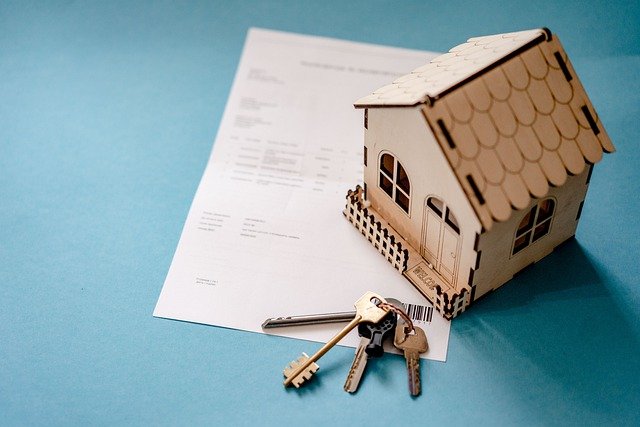It is no longer beyond reach for foreigners to own real estate property in Vietnam (“Property”). The promulgation of the 2014 Law on Residential Housing (“LORH“) opens the door for foreigners to purchase and enjoy ownership over Property in Vietnam.
Under the LORH, foreigners who meet the following requirements are eligible to purchase Property in Vietnam (“Foreigners”):
- Being permitted to enter into Vietnam;
- Having a valid passport affixed with an entry stamp by the immigration authority of Vietnam;
- Not being entitled to diplomatic privileges and immunities; and
- Having full civil capacity to commence civil acts to initiate a residential housing transaction.
1. Types of purchases property
Property to be purchased can be apartments or residential housing (including villas, terraced houses) satisfying the following requirements:
- The Property must be part of investment projects for the construction of commercial residential housing, and not be located in national defense and security areas. The Provincial Department of Construction (“Provincial DOC”) shall provide a list of permitted commercial residential housing projects for Foreigners; and
- Foreigners/foreign organizations are only entitled to purchase no more than 30 per cent of the total number of apartments in one apartment building; or to purchase no more than 250 individual residential houses in one area with the population size equivalent to that of an administrative unit at the ward level.
2. Rights and interests of foreigners over purchased property
Foreigners purchasing Property in Vietnam are entitled to the following substantial rights and interests:
- Possession: Owning the Property as agreed in the sales contract, but with the ownership term not exceeding 50 years from the date of issuance of the ownership certificate, which may be extended. Prior to the expiry of the ownership period, Foreigners can donate or sell the Property to subjects entitled to own Property in Vietnam. If not, upon expiry of the ownership period, the Property shall belong to the State. In case of being married to Vietnamese citizens, Foreigners may own the Property on a stable long-term basis and enjoy the same rights of residential house owners as conceded to Vietnamese citizens;
- Enjoyment: Using the Property for residential purposes and other purposes that are not prohibited under the laws of Vietnam; and
- Disposition: Foreigners have the same rights of residential house owners as Vietnamese citizens, subject to compliance with the regulations applying to foreigners. In principle, they have the following rights: selling (not for profit purposes), transferring the contract for sale and purchase, leasing out, granting hire purchase, donating, exchanging, bequeath, mortgaging, contributing as capital, lending, permitting others to reside rent-free in, or authorizing other persons to manage the residential house; in case of donation or bequeathal of a residential house to subjects not entitled to residential house ownership in Vietnam, such subjects may only enjoy the value of such residential house.
3. Property purchasing process
Step 1: Verifying the compliance with the requirements to purchase the Property.
Step 2: Examining the list of projects/properties which foreigners are allowed to buy houses/apartments in. This list will be published by the Provincial DOC.
Step 3: Checking the proportion for foreigners with the developer and the Provincial DOC, as the law restricts the capacities to be purchased by foreigners to not more than 30 per cent of the total number of houses/ apartments of the project.
Step 4: Entering into the contract with the developer/real estate agency to buy the house/apartment, and subsequently executing the payment in accordance with the terms and conditions of the contract.
Step 5: Seeking for the developer’s assistance in acquiring the Land use right certificate and assets attached to land (“LURC”); The buyer will pay the registration fee at the time of registration of LURC (0.5 per cent of the price of the house/apartment).
Step 6: Obtaining the LURC from the State authority recording the house ownership of the buyer.
4. Obstacles
Though owning a Property in Vietnam may be financially attractive, potential foreign buyers should be aware of the challenges they may meet in practice.
Firstly, on each province, the Provincial DOC will issue a list of permitted commercial residential housing projects for foreign individuals to buy in. The purchase of Property in the projects which are outside of the list may not be approved by the Provincial DOC.
Some provinces such as Ho Chi Minh City still do not issue that list, therefore, the issuance of LURC is still pending for Foreigners. In a worst case scenario, Foreigners may find themselves confronted with the fact that the Property they already purchased is actually not allowed to be owned by foreign individuals; in these cases, the Foreigner must try to transfer the contract to other entities. A popular solution is that the Foreigner will ask a Vietnamese individual (i.e. their spouse, relative, etc.) to purchase the house for them. Nonetheless, this solution contains massive risks regarding the house ownership.
Secondly, not all developers will strictly abide by the law and the regulations in the contract. The Vietnamese market has witnessed many cases in which the developer carries out the project improperly, e.g. by using the land for others than the permitted purposes, by building the apartments in excess of the permitted number of floors etc. Therefore, the Foreigners may need assistance from experienced lawyers to assess the project prior to buy a Property.


